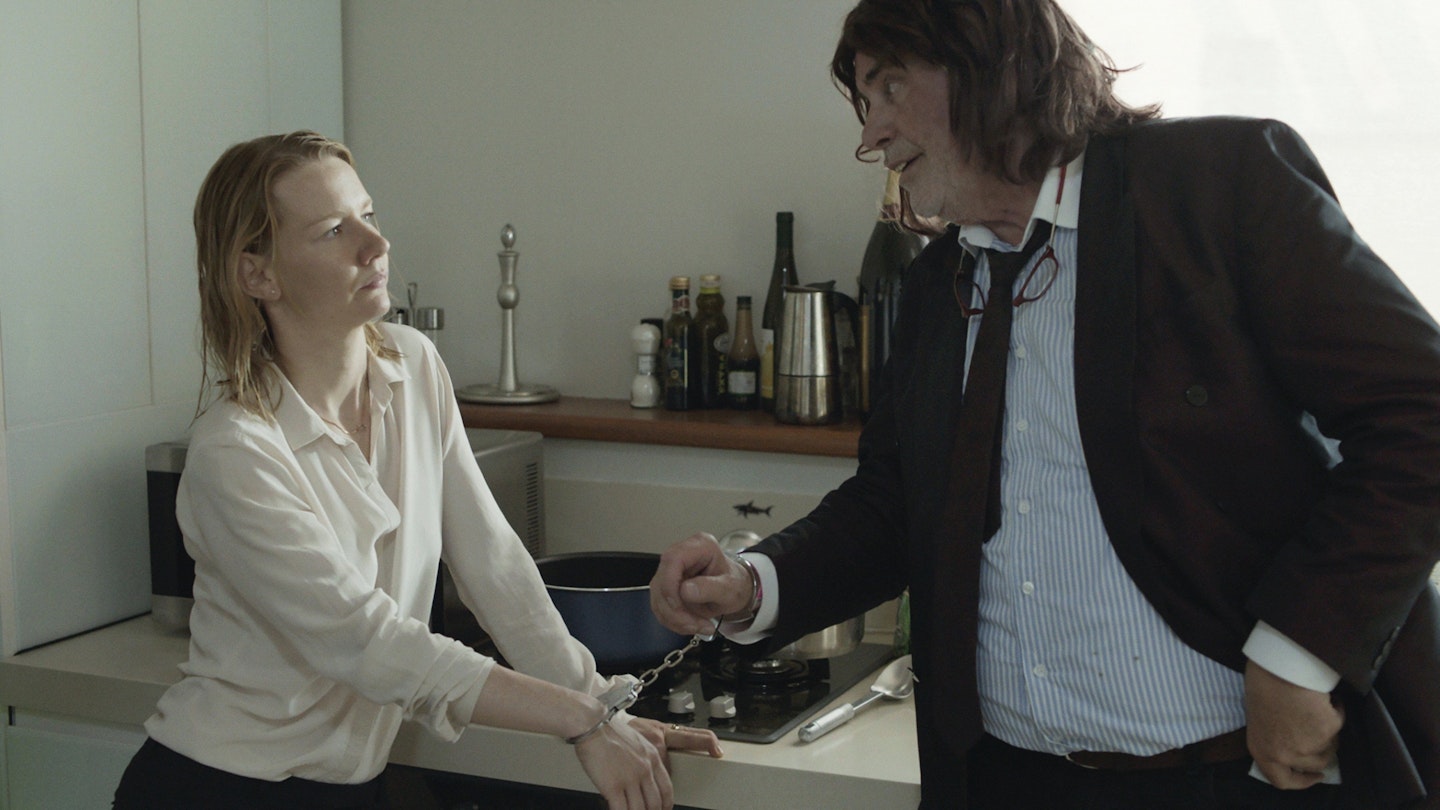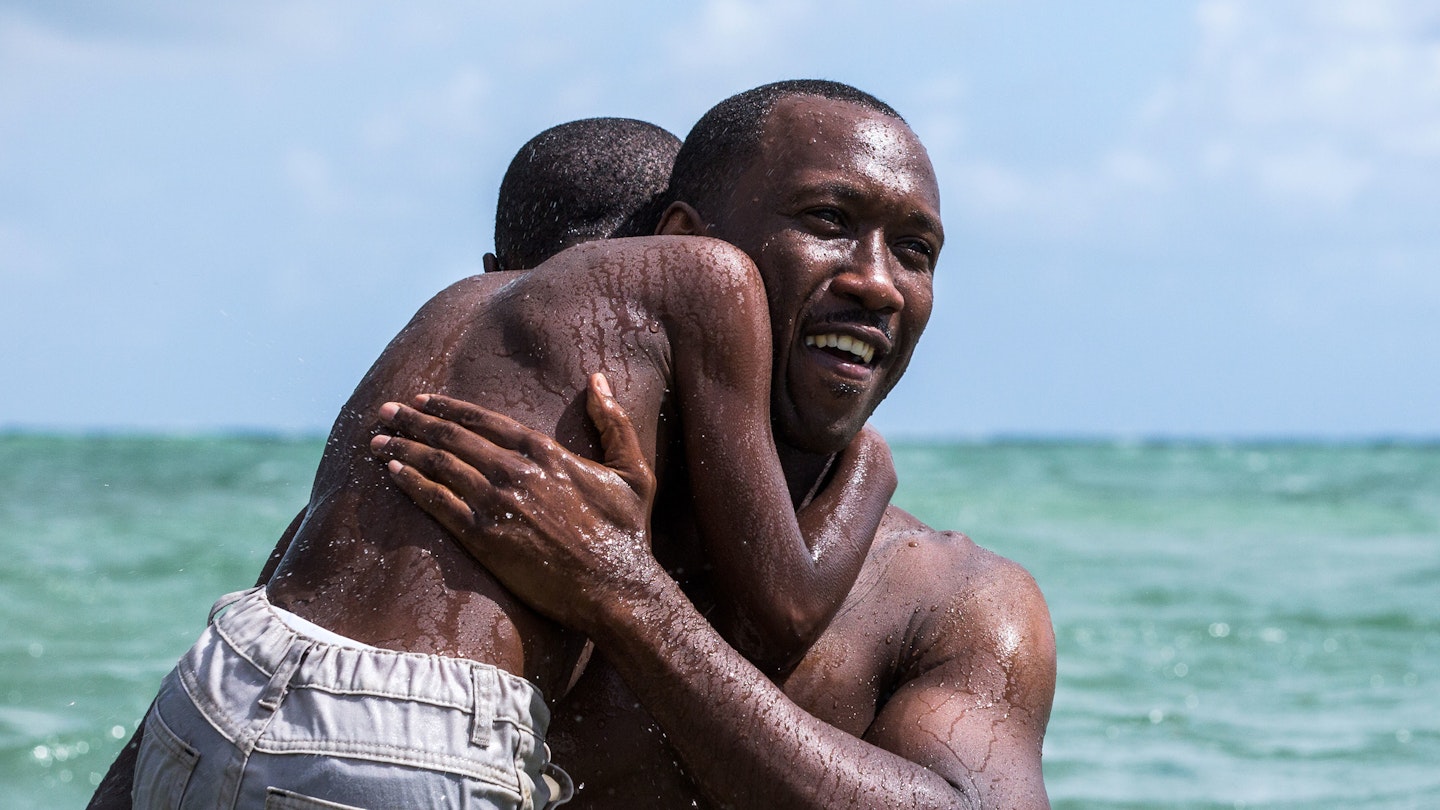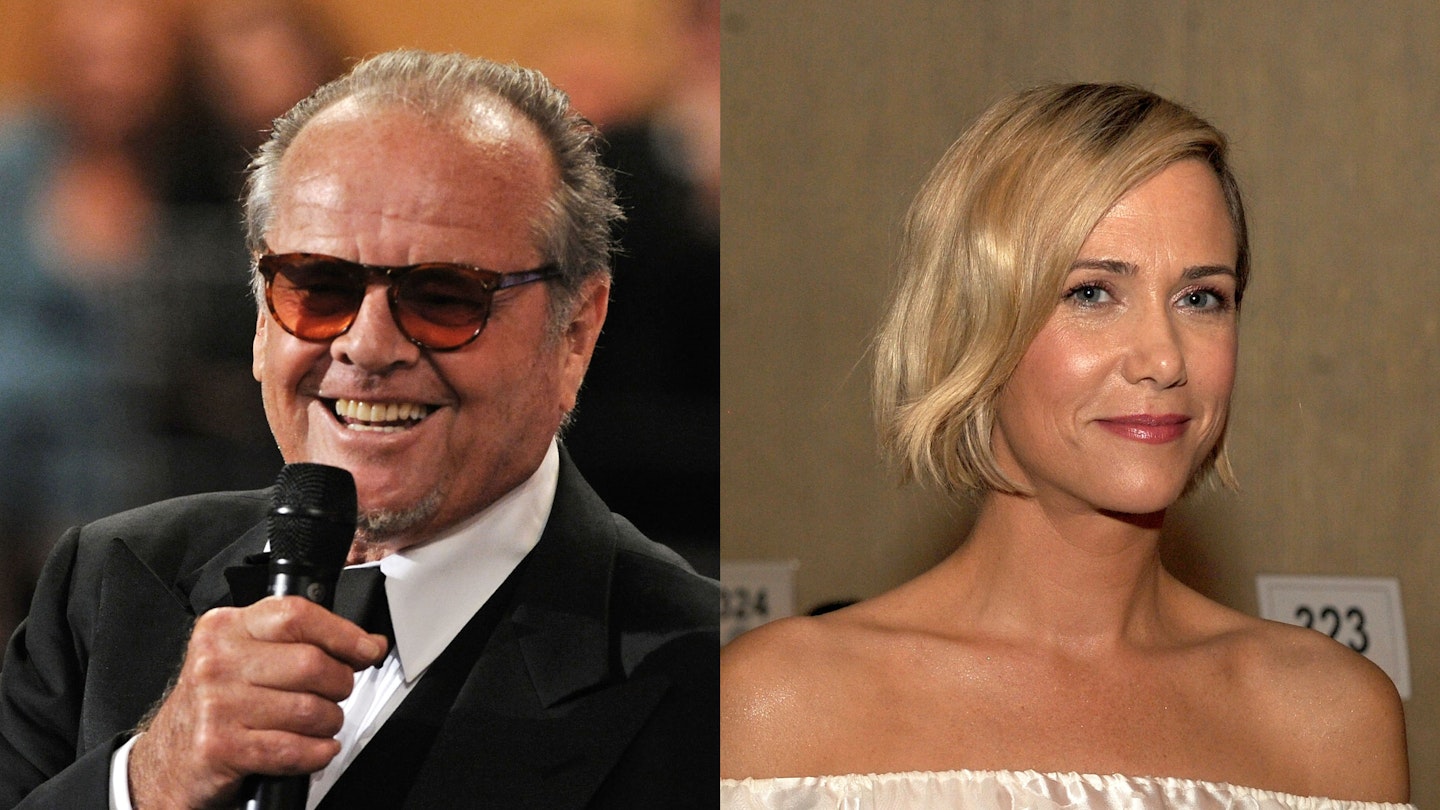If you want a snapshot of the oddball brilliance of Toni Erdmann, just hoover up some of the IMDb plot keywords: “father-daughter relationship”, “false teeth”, “woman watching man masturbate”, “capitalism”, “zombie make-up”, and “reference to Whitney Houston”. Writer-director Maren Ade’s 2016 Cannes darling works very hard to stack the odds against itself. It’s nearly three hours long. It’s set in the densely detailed world of German business consultants. It’s a comedy built around wigs, whoopee cushions and jizzing on petits fours.
A comedy built around wigs, whoopee cushions and jizzing on petits fours.
Yet the result is funny, perceptive, alive to life’s richness and absurdities and in its final moments, absolutely devastating. The set-up sounds like well-tooled Hollywood comedy: prankster dad cheers up his workaholic daughter through wacky personas — saccharine life lessons ensue. Happily, Ade has no truck with formula. Thanks to great writing and superlative performances, the relationship between good-hearted, hang-dog Winfried (Simonischek) and his daughter, built-for-business Ines (Sandra Hüller), feels authentic — deftly toggling between affection and stone-cold exasperation. There is no ill intent or malice on either side but the pair can’t help but disappoint each other over and over again. And it’s a joy to watch.
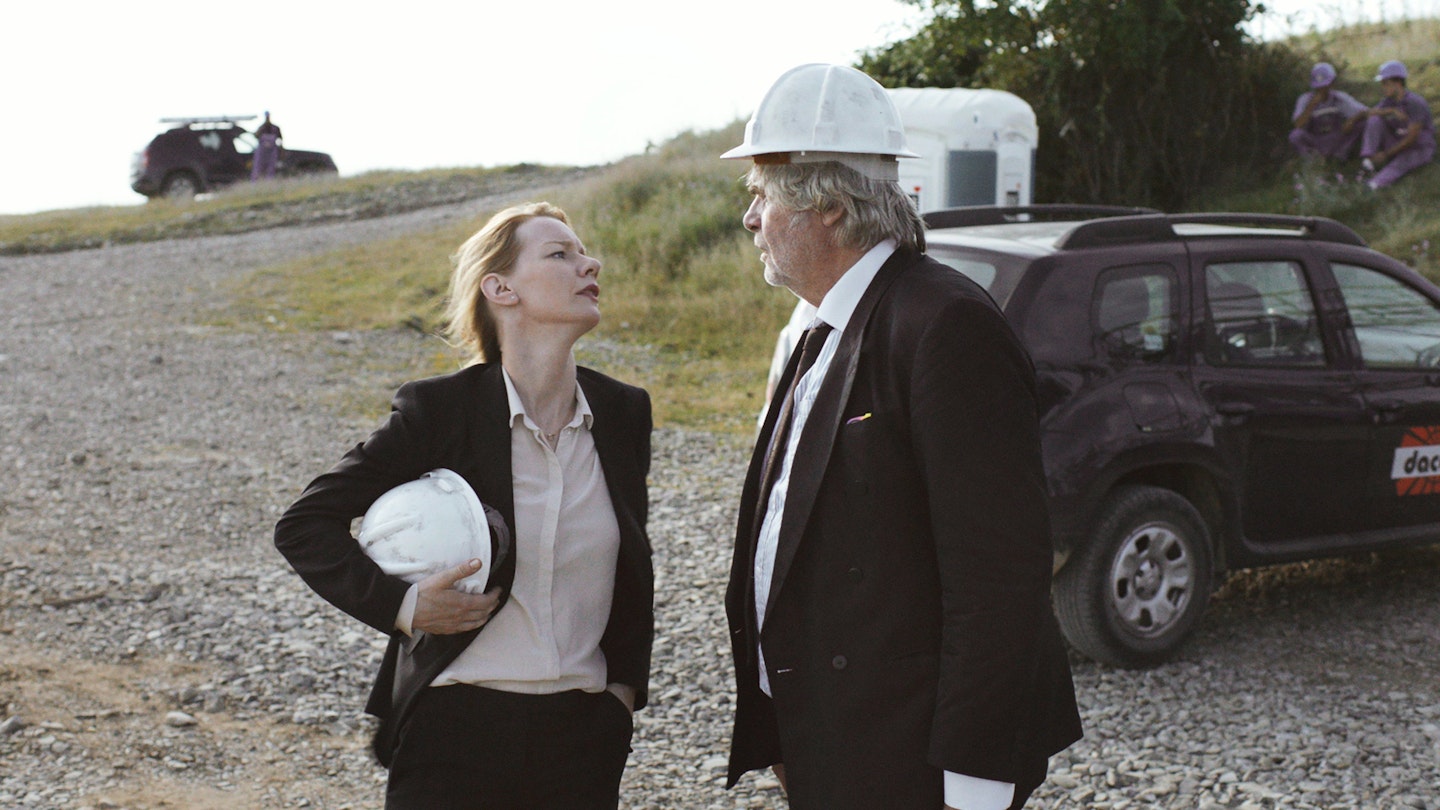
Ade delivers laughs in spades — there is something of the deadpan absurdity of A Swedish Love Story director Roy Andersson in her worldview — and creates a malleable tone that can take in a man dressed as a tree and always feel real. Yet she never forgets to mine the human from the high concept. It’s in beautifully observed moments such as when Ines and Winfried say goodbye to each other yet have to endure an awkward, agonising wait for a lift. From its opening scene — Winfried plays an elaborate joke on a courier — to a naked party set-piece to its climactic moment of heart-rending surrealism, Toni Erdmann hits so many different notes and colours. The effect is dazzling.
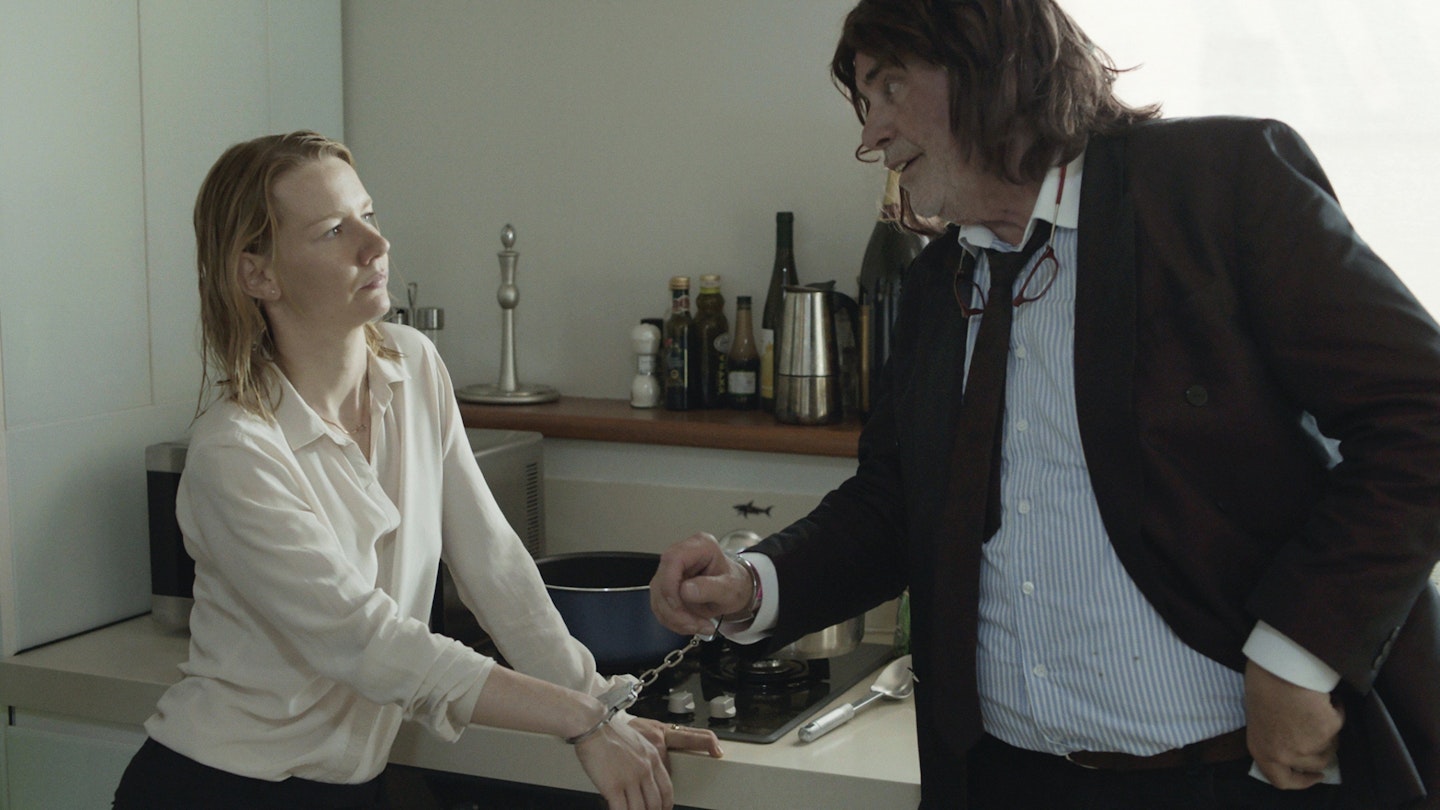
This range also runs to telling social commentary. It is a film with a keen sense of the shifting landscape of Europe (as Ines plans to make people redundant, Ade’s camera pointedly wanders from the meeting room to capture the poverty outside) and gender dynamics in the workplace, quietly etching the way women are subtly demeaned in professional life. Just watch how Ines is taken infinitely more seriously just because she has a man by her side, even if he is a weapons-grade buffoon.
One of its manifold pleasures is seeing its initially unsympathetic, borderline unlikeable protagonists reveal previously untapped depths, softer sides and vulnerabilities. Beneath Winfried’s irritating Beadle-like penchant for wind-ups and dad jokes comes an openness about the world. Similarly Ines’ career-girl defences come down gradually, charting a course from business-like reserve to exhibitionism, until, in spectacular fashion, she is warbling Whitney’s The Greatest Love. Hüller’s performance is beautifully modulated. In an alternative universe, she will be bounding up the stairs of the Dolby Theatre to the podium come 26 February. But in the real world, let’s just marvel at the achievements of a stunning central performance in a genuine, droll, emotionally powerful oddity.
